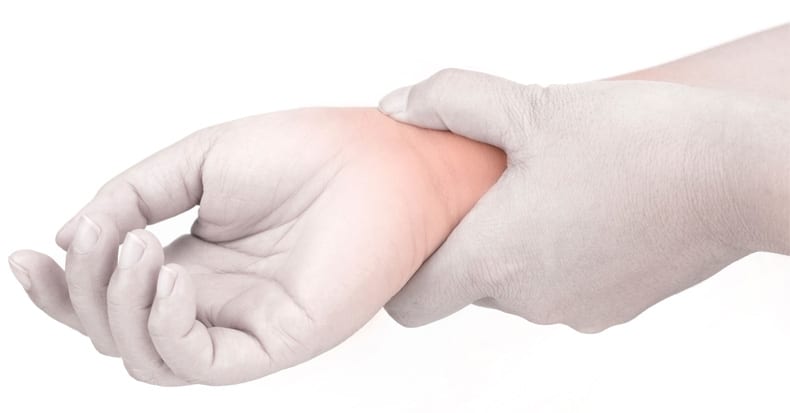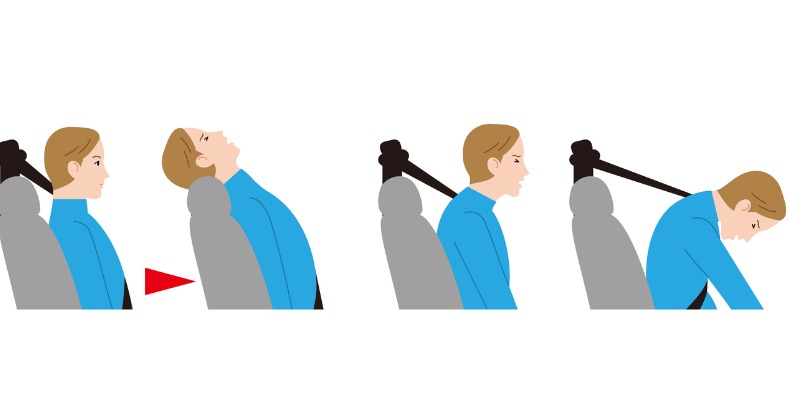Newest Articles
It is common knowledge that we can all benefit from exercise; however, it is especially important for people with fibromyalgia
(FM) to exercise as it reduces fatigue, increases energy, improves
joint flexibility, and improves sleep quality and mood. In essence,
exercise allows FM sufferers to live a more enjoyable and fulfilling
life!With that said, it [..]
Carpal tunnel syndrome
(CTS) is one of the most common causes of pain, loss of work, and
work-related disability in the United States. It affects approximately
50 per 1,000 persons in the general population and the average lifetime
cost of CTS (including medical bills and lost work time) is estimated to
be about $30,000 per [..]
When your doctor of chiropractic says to you, "…you have a cervical disk problem," do you know what that means? I didn’t think so. As doctors, we talk about these things so often, we sometimes just assume you know what we’re talking about. So first, sorry about that! Now, let’s clear up the question, what [..]
Whiplash or cervical acceleration-deceleration disorder (CAD) is primarily associated with motor vehicle collisions (MVCs) and in particular, rear-end collisions. Last month, we discussed how CAD can be prevented and focused greatly on paying attention while driving and the position of the headrest. Whiplash is defined as an injury to the cervical spine (neck) caused by [..]
Last month, we listed many great "pearls" of wisdom direct from patients suffering with Fibromyalgia
(FM), some of which we would like to directly focus on this month and
expand as these truly arise from the heart of the experienced and
deserve more attention (plus, we couldn’t include them all last month
and can expand [..]
Carpal Tunnel Syndrome (CTS) is a common condition that affects many people. The process by which it is diagnosed involves a careful history and examination that includes an orthopedic and neurological exam, special sensory tests (including vibrometry or neurometry), and sometimes special tests such as X-Ray, MRI, EMG/NCV. So, let’s discuss this process...
HISTORY: When [..]
We are often asked, "What can chiropractors do for headaches?" To answer this question, let’s look at what a patient might expect when seek chiropractic care for their headaches.
Previously, we reviewed the differences between tension-type headaches, migraine headaches, and dangerous types of headaches. The patient history and examination will focus on differentiating between these [..]
It’s been reported that educating the patient about their condition reduces unnecessary anxiety and fear, which in turn, allows a more swift resolution of their condition. The intensity of low back pain (LBP) can sometimes be so severe, the patient can hardly move without getting a sharp, knife-like pain that stops them in their tracks. [..]
We have discussed fibromyalgia
(FM) from many perspectives but what we haven’t done yet is listen to
what actual FM patients have to say about what works and what doesn’t
work. Rather than reading about what "the experts" say about FM and what
to do for it, let’s take a different perspective – let’s talk [..]
This article will address the topic of dangerous headaches.
To keep this in perspective, most headaches are NOT dangerous. In fact,
tension-type headaches and migraines are very common and remain the
focus of most healthcare providers and patients who suffer from
headaches. With that said, it’s important to discuss the signs and
symptoms that might [..]
"Where does the pain come from?" is probably the most commonly asked question we hear as chiropractors and frequently, the patient is not told the answer to this simple question. The problem is, the question is not so simple. This is because there are many structures in the low back that share a common nerve [..]
Whiplash, also called cervical acceleration-deceleration disorder (CAD), often occurs as a result of automobile collisions. So, the question is raised, "…can it be prevented?" To answer this question, we must first consider the obvious facts about minimizing your distractions when you drive: intoxication; engaged conversation (especially if you’re trying to make eye contact); talking on [..]















